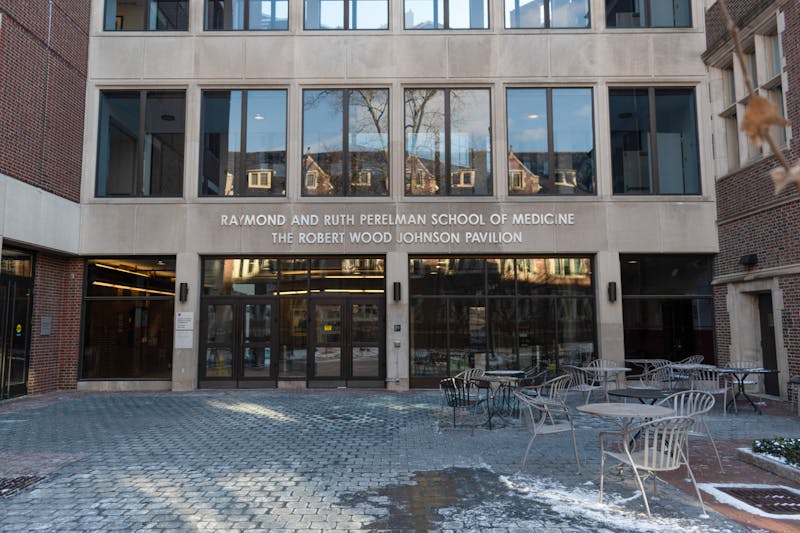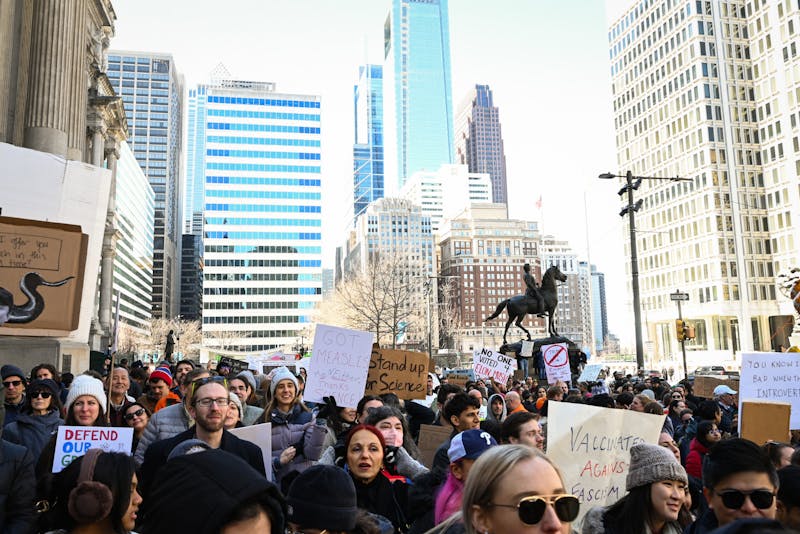Audience also heard from a panel of experts during a forum on the role of charter schools in public education. Flanked by smiling children and elected officials from both parties, Gov. Tom Ridge signed legislation that will allow charter schools in Pennsylvania last Thursday during a public forum on charter schools at the Free Library of Philadelphia. Charter schools are public schools designed by parents, teachers and community members to meet specific educational goals. They are freed of many government and union regulations, but charters can be revoked if they do not achieve their goals after a set period. Pennsylvania has already awarded grants to start 67 charter schools, and six are expected to open in Philadelphia this fall. Ridge said the main advantage of charter schools is that the community determines the need and designs the school. "People should have more to say about the kind and quality of education than government," Ridge said. "We want to share the responsibility for molding each child's future with the people who mean the most to the child." He also said charter schools need not be built from scratch, noting that a local public school can be turned into a charter school. Ridge signed the bill at a previously scheduled forum entitled "The Role of Charter Schools in Education Reform," which featured a panel of experts from around the country. Timothy Daniels, Executive Policy Specialist for the Pennsylvanian Department of Education, explained that Pennsylvania's charter school legislation is unique because it provides an appeals board for applicants whose charters are turned down or not renewed. He added that the law only requires 75 percent of teachers to be certified and explained that qualified individuals who are not certified -- such as doctoral students at local universities -- who could not teach at regular public schools will be allowed to teach at charter schools. The panel also included Ted Kolderie of the Center for Policy Studies in St. Paul, Minnesota -- an authority on charter schools who has consulted with the U.S. Congress, state legislatures, departments of education, school boards and other organizations on strategies to revitalize public education. Kolderie explained that parents currently enroll their children in the local public school unless they can afford private school. He added that charter schools will "extend choice to parents without the means to pay for private education." Kolderie said charter schools have the potential to redefine the role of school boards, noting that "the board need not own and operate every program it offers." He called the relationship between a charter school and a school board "contractual" because the school's survival is linked to its success in fulfilling its mission. Philadelphia Superintendent David Hornbeck also spoke, claiming that charter schools -- of which there are now over 500 in 19 states -- are not a threat to the public school system. "If properly implemented, we believe public charter schools have the ability to help revitalize public education as we know it, providing quality educational programs to students with whom we have traditionally failed," he said. Hornbeck emphasized that charter schools cannot become elitist and expressed concern that students who transfer from private schools will drain the already underfunded public school system of valuable resources. Karen DelGuercio of the Philadelphia school district said reform must occur "school by school, class by class and block by block," adding that the process must be "grass roots up, not top down." She also spoke about the role of clusters -- groups of elementary and middle schools which feed into one high school to form a cohesive education -- under the new law. DelGuercio -- who is leader of the Strawberry Mansion Cluster -- suggested the possibility of converting one of the 22 clusters in the Philadelphia school district into a charter cluster consisting of only charter schools.
The Daily Pennsylvanian is an independent, student-run newspaper. Please consider making a donation to support the coverage that shapes the University. Your generosity ensures a future of strong journalism at Penn.
DonatePlease note All comments are eligible for publication in The Daily Pennsylvanian.







